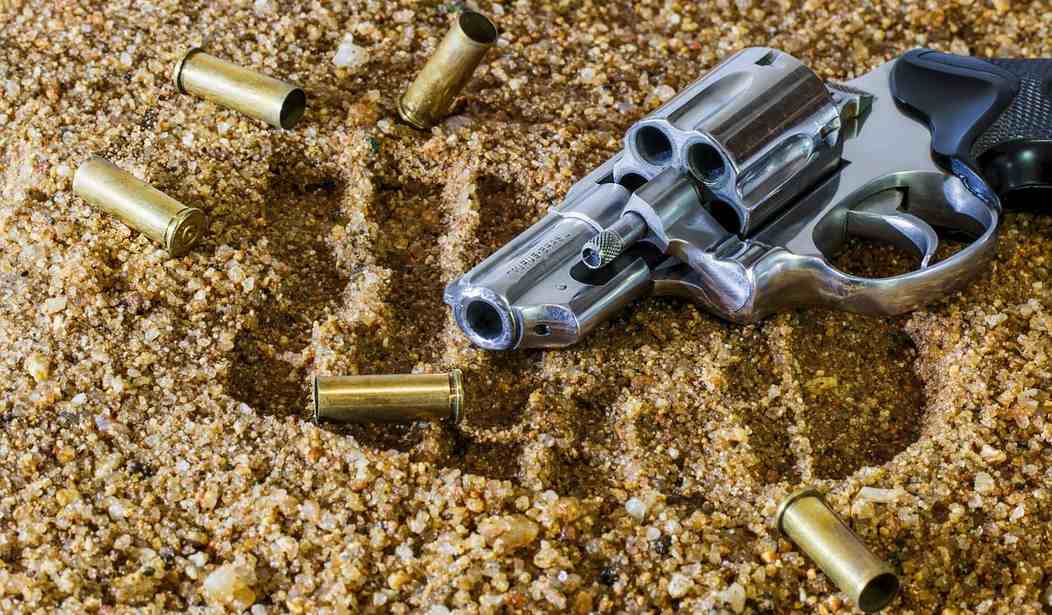Sometimes, it’s easy for us to look at things that happen to alleged criminals and shrug. I know I’m guilty of it far more often than I’d like to admit. After all, gang bangers cause so many problems not just for society as a whole, but for gun owners specifically. After all, their actions are often used as justification for stripping us of our rights.
However, the reality is that infringement on the liberties of some of those people can spill over onto us.
Take carrying a firearm, for example. Should the police be able to make people stand up in order to observe whether they have a firearm or not? A Massachusetts court case says no.
The Massachusetts Appeals Court ruled today that BPD gang-unit members didn’t have enough reason to order a teen sitting in a Columbia Road barbershop to stand up for a pat frisk, which revealed he had a gun in his pants.
The ruling means the gun taken out of his pants can’t be used as evidence against him and that he has to be given the chance to withdraw his guilty plea.
According to the court’s summary of the case, a reliable informant had told a drug-unit detective on Sept. 21, 2015 that they could find a Columbia Road Gang member in a black hoodie and jeans with a gun in the area of Columbia Road and Devon or Stanwood streets, standing with another guy in “an off-white colored hoodie.” The detective turned the matter over to the gang unit, where a supervisor dispatched several officers.
Two of the officers promptly found a guy in an off-white hoodie, whom they knew had prior criminal charges, standing alone. They stopped and frisked him, but found no gun. They kept looking and found another guy, wearing a black-and-gray hoodie, on Columbia Road and frisked him as well, but, again, found no gun. Then one of them looked into the barber shop near where that guy was standing and spotted somebody in a black hoodie and jeans sitting on a chair, talking on his phone – a teen they knew as a member of the Columbia Road Gang. They ordered him off the phone and to stand up:
The juvenile asked why, and the officers “pulled him up . . . to stand.” Once the juvenile was upright, the officers observed a bulge on the right side of his waist. The officers, from their training and experience, believed the bulge to be consistent with a firearm. Officer Small pat frisked the juvenile and felt what he believed to be a firearm. He lifted the juvenile’s shirt and removed a firearm from his waistband. The juvenile was immediately brought to the floor and placed under arrest.
The teen was indicted as being delinquent for unlawful possession of a firearm. He pleaded guilty, but on the condition that he would appeal.
Which, of course, he did and clearly won it.
See, I don’t like the idea of armed gang members either, but our rights are our rights. They have to apply to everyone or else they simply don’t exist as rights. They’re privileges doled out to those our betters consider worthy.
What happened was the police kept looking at people until they found someone with a gun. The court argued that the information available was incredibly vague and it was. A black hoodie standing with someone with a white hoodie? Not really detailed, to be sure. Further, the defendant wasn’t standing with someone. He was sitting in the barbershop talking on the phone.
This crusade against someone just having a gun, though, is a problem. Yes, I doubt he obtained it legally and I doubt he was eligible to have one. However, this anti-gun jihad that exists throughout New England can lead to law-abiding permit holders having to deal with harassment as police demand to see their permits for no reason other than they happen to have a gun.
In some places, a concealed firearm even printing is considered open carry and permit holders can get jammed up.
What happened with this kid may be easy for some of us to gloss over, but it’s actually related to the harassment some law-abiding citizens get when they lawfully carry a firearm. They don’t end up in handcuffs, but often not because the officer wouldn’t prefer it that way, and that’s an issue.
Police have to play by the rules. In this case, they didn’t.







